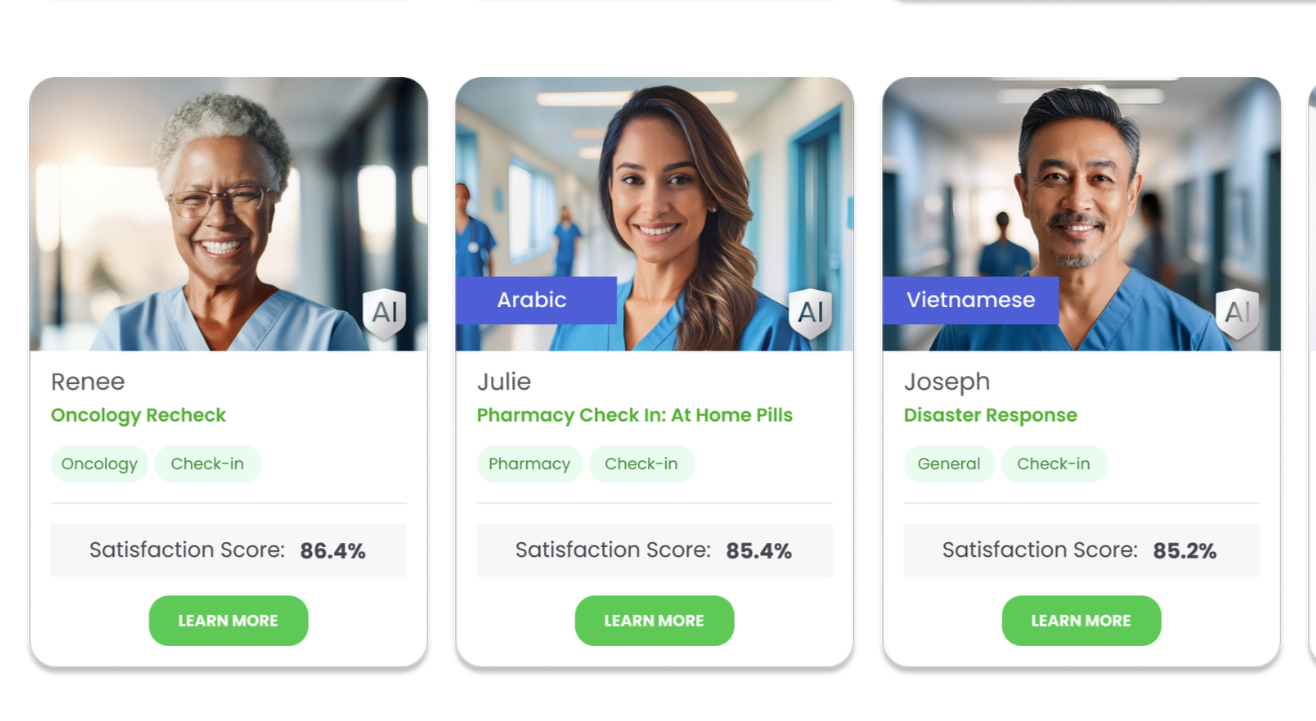Three months ago, startup Hippocratic AI released its first commercial product, a generative AI-based, task-specific healthcare agent.
It also unveiled a collaboration with Nvidia in March to develop large language models for healthcare.
The AI chipmaker has now progressed from being a partner to an investor. Nvidia’s venture capital arm, NVentures, along with Greycroft and Lee Shapiro of 7Wire Ventures, backed a $17 million investment as an add-on to Hippocratic AI’s recently closed extended Series A round.
The startup has raised $137 million to date, after banking $53 million in series A funding in March.
The first close of the Series A round was co-led by Premji Invest and General Catalyst with participation from SV Angel and Memorial Hermann Health System as well as existing investors Andreessen Horowitz (a16z) Bio + Health, Cincinnati Children’s, WellSpan Health, and Universal Health Services (UHS). That series A round boosted Hippocratic AI’s valuation to $500 million.
“Generative AI will expand the healthcare industry and its ability to serve the growing demands of patient care, and Hippocratic AI is putting the technology to work to increase access to healthcare,” said Kimberly Powell, vice president of healthcare at Nvidia in a statement. “The company’s safety-focused approach uses advanced Nvidia technologies to make personalized, real-time patient interactions more natural and capable, helping build trust among patients and clinicians alike.”
Munjal Shah, a serial entrepreneur, founded Hippocratic AI along with a group of physicians, hospital administrators, healthcare professionals and artificial intelligence researchers from El Camino Health, Johns Hopkins, Washington University in St. Louis, Stanford, Google, and Nvidia.
“I think this marks the first healthcare investment Nvidia has made. It’s not biotech, it’s not a pharma investment. We partnered with them five months ago to really bring generative AI to healthcare. It can have a very big impact on healthcare, but they wanted to ensure it was safe, and that’s why they partnered with us,” Shah told Fierce Healthcare in an interview.
The startup, which launched out a stealth in 2023, aims to build out what it refers to as the first large language model for healthcare with an initial focus on non-diagnostic, patient-facing applications.
“Hippocratic AI is building the first safety-focused large language model for healthcare. We started out by really saying safety was the most important thing, and we needed to partner with the industry to do that, and that’s what we did,” Shah said.
The company will use the funding to continue building the product, creating new use cases and improving the speed and safety, Shah noted.
The company’s staffing marketplace enables health systems, payers, and others to “hire” generative AI-powered agents to conduct low-risk, non-diagnostic, patient-facing services to help address the massive shortage of healthcare nurses, social workers and nutritionists in the U.S. and worldwide, according to the company.
The company’s website now features 19 different healthcare agent roles.
Initial roles for these generative AI healthcare agents include pre-operative, chronic care management, post-discharge, nutritionists, assisted living, pharmaceutical clinical trial coordination, patient education, transitions of care check-in and wellness coaching, to name a few.
The use of AI is helping to create an “abundance of healthcare” to keep up with demand for care services as organizations face challenges with staffing shortages, Shah noted.
The company developed a clinician-driven safety testing system for LLMs. Phase one testing was conducted by physicians and nurses to ensure the agent completes all critical checklist items with the patient for a given use case. Phase two testing required testing to be completed by more than 1,000 licensed U.S. nurses, and more than U.S. licensed physicians talking to the AI while acting as a patient. Phase three testing, which began back in March, requires the testing to be completed by 4,500 licensed nurses, the company told Fierce Healthcare in March.
“We recruited these nurses to act as patients and to talk to the product as if they were patients, and then mark all the errors, and then we went and fixed all the errors. We did 230,000 calls, test calls, and that was a very important safety milestone that we built. The other was just building the model itself and getting it to work and getting it not to hallucinate,” Shah noted. “It was just an exercise in really getting the long tail right in order to ensure safety.”
In the earlier phases of testing, nurses were asked to assess the product on subjective and objective safety measures and compare the product to real nurses and other LLMs such as GPT4 and LLaMA 2 70B Chat.
Study participants rated the AI agent on par with U.S. licensed nurses on multiple dimensions. On objective criteria, the medium-size AI agents significantly outperformed much larger general-purpose LLMs like GPT-4 in medical accuracy and safety, according to a research paper published in March.
In the past year, the company has formed AI oversight groups, including a safety governance council, a Physician Advisory Council, and a Nurse Advisory Council. It also hired Amy McCarthy as its inaugural Chief Nursing Officer. She currently serves as the president of the Texas Nurses Association.
For phase three testing, Hippocratic AI asked its 40-plus partners to test the safety of its generative AI-based product. These partners include HonorHealth, Cincinnati Children’s, OhioHealth, Roper St. Francis Healthcare, Universal Health Services, ELNA, SonderMind, Vital Software, Capsule, Evernow, HarmonyCares, Guidehealth, University of Vermont Health Network, Memorial Hermann Health System and Wellspan Health.
As part of its technical collaboration with Nvidia, Hippocratic AI is leveraging the company’s AI platform to develop empathetic AI healthcare agents for super-low-latency conversational interactions. User tests repeatedly show that super low latency voice interaction is required for patients to build an emotional connection naturally. Since LLMs run on inference engines, Hippocratic AI has termed this low latency inference: “Empathy Inference.”
“Nvidia is an ideal collaborator to help us achieve our vision of delivering healthcare abundance,” Shah said. “Our deep technical collaboration has helped us to build an LLM with extremely low latency leading to more empathetic inference capabilities. Their venture capital arm’s investment in our company demonstrates our shared interest in harnessing the power of generative AI to revolutionize healthcare.”
The LLM’s empathetic inference capabilities and low latency means the AI-based healthcare agents respond quickly to patients’ questions or comments for a more human-like interaction — individuals feel uncomfortable when there is a long pause before getting a response. The agents also have concept recognition, Shah noted, and have a stronger understanding of what the patient is trying to say compared to other generative AI tools, thanks to the use of powerful LLM models.
Hippocratic AI also is advancing medical domain specialization in LLMs through custom automated speech recognition (ASR) technology, fine-tuned to meet the needs of clinician-patient interactions, according to the company.
Publisher: Source link










